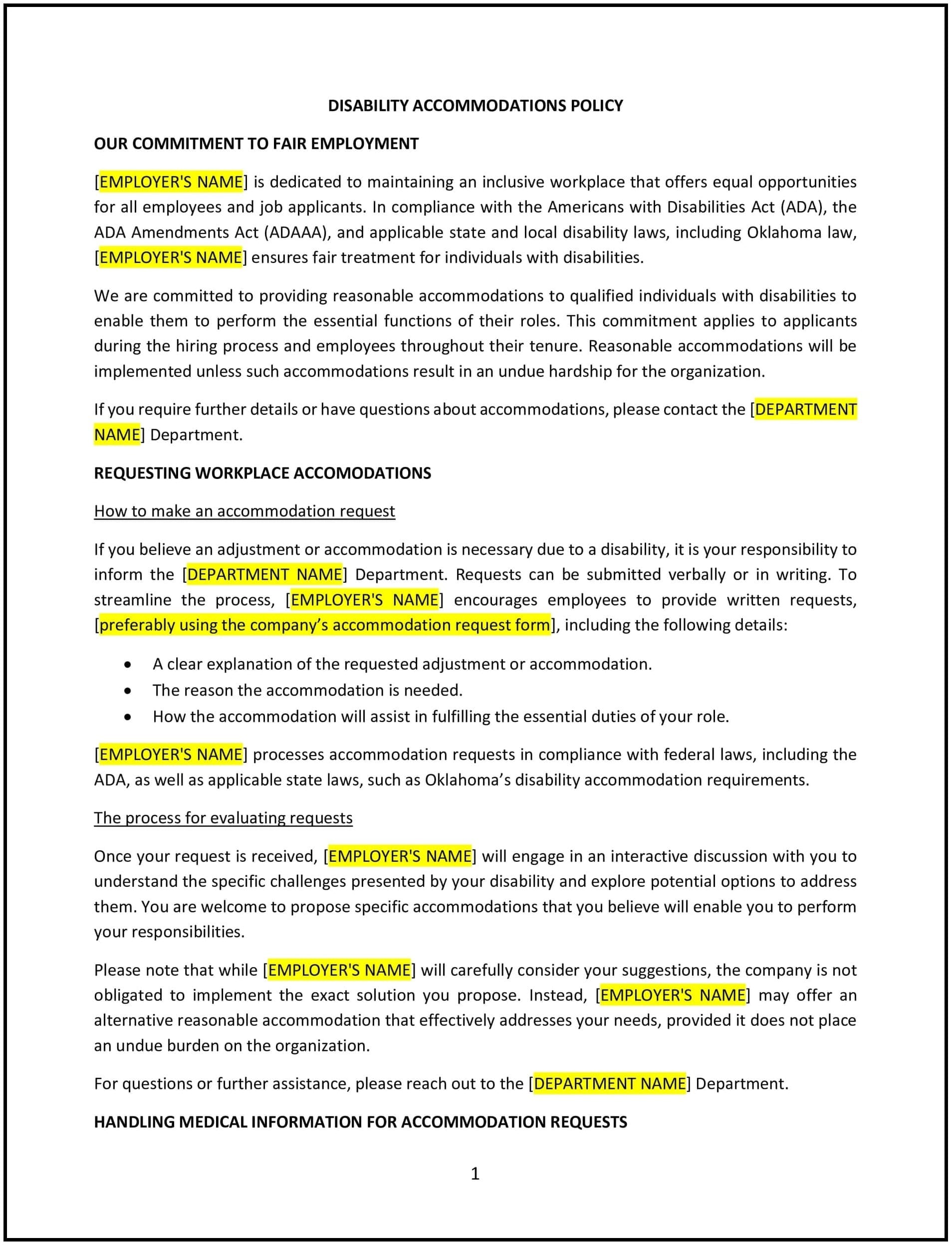Disability accommodations policy (Oklahoma): Free template
Got contracts to review? While you're here for policies, let Cobrief make contract review effortless—start your free review now.

Customize this template for free
Disability accommodations policy (Oklahoma)
This disability accommodations policy is designed to help Oklahoma businesses establish clear guidelines for providing reasonable accommodations to employees with disabilities. The policy outlines the accommodation request process, evaluation procedures, and workplace modifications to ensure equal access and opportunities for all employees.
By implementing this policy, businesses can support an inclusive work environment while addressing operational and accessibility needs.
How to use this disability accommodations policy (Oklahoma)
- Define reasonable accommodations: Specify the types of modifications or adjustments available, such as flexible work arrangements, assistive technology, or facility modifications.
- Establish request procedures: Outline how employees can formally request accommodations, including required documentation.
- Assign evaluation responsibilities: Designate HR or management personnel to assess requests and determine feasible accommodations.
- Implement workplace adjustments: Ensure modifications are made in a timely manner and align with business capabilities.
- Maintain confidentiality: Protect employees’ medical and personal information throughout the accommodation process.
- Monitor effectiveness: Periodically review accommodations to ensure they remain appropriate for the employee’s needs and job responsibilities.
- Review regularly: Assess and update the policy to align with Oklahoma-specific regulations and workplace accessibility standards.
Benefits of using this disability accommodations policy (Oklahoma)
Implementing this policy provides several advantages for Oklahoma businesses:
- Supports workplace inclusivity: Encourages equal opportunities for employees with disabilities.
- Reduces legal risks: Helps businesses follow best practices in compliance with accessibility laws.
- Improves employee retention: Creates a supportive work environment that accommodates diverse needs.
- Enhances productivity: Ensures employees can perform their duties effectively with necessary accommodations.
- Reflects Oklahoma-specific workforce considerations: Aligns with local regulations and industry best practices for accessibility.
Tips for using this disability accommodations policy (Oklahoma)
- Communicate policies clearly: Ensure employees understand the process for requesting accommodations.
- Train managers: Provide training to supervisors on how to handle accommodation requests properly.
- Document all requests: Maintain detailed records of accommodation requests, assessments, and decisions.
- Encourage open dialogue: Foster a culture where employees feel comfortable discussing accessibility needs.
- Reassess accommodations regularly: Adjust accommodations as employee needs or workplace conditions change.